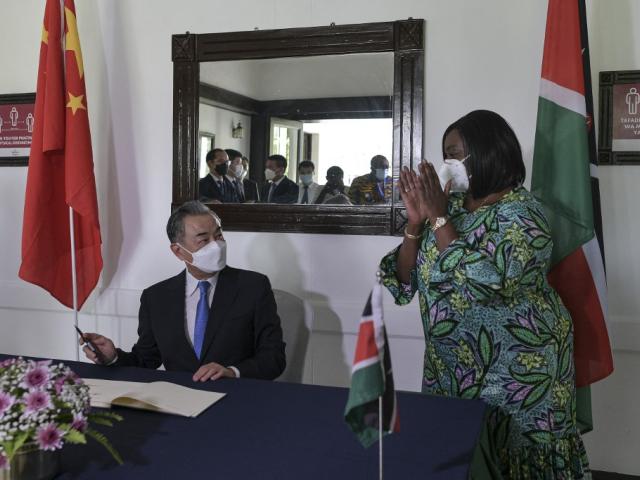In March 2021 the contribution Nigerians abroad make to their home country was widely debated after Ahmed Wase, speaker in the house of representatives, blocked a petition by the Tiv community in the US.
The petition was brought to the house by the Mutual Union of Tiv in America.
The Tiv historically live along Nigeria’s Benue River, as well as in Cameroon. In Nigeria, they are thought to number about 4.5 million – roughly 2.5% of the country’s population. The petition protested the Nigerian Tiv community’s violent displacement from “ancestral lands” by armed herders.
Wase dismissed the petition by saying: “If they are in America, could they be an interested party here? Could they really know what is exactly going on?” He later defended himself from the ensuing criticism.
In response, the Tiv union issued a statement that made several claims about the wider diaspora’s contribution to Nigeria’s economy.
We checked four of them.
Claim: ‘In 2019, Nigerians residing abroad contributed approximately US$23.5 billion to the Nigerian economy in the form of direct business investments and remittances back to their families.’
Verdict: Unproven
The Tiv union’s statement was signed by its president, Simon Kusugh. Africa Check asked Kusugh about the source of his data. We also asked whether the $23.5 billion was sent through formal or informal channels, or both. He is yet to respond, and we will update this report if he does.
But what does the data show?
The World Bank estimates that Nigerians abroad sent $23.8 billion back home in 2019. These “remittances” were down from the $24.3 billion sent in 2018.
The bank said its estimate was based on its own data and on data from the International Monetary Fund as well as that from central banks and national statistical bureaus across the world.
The Central Bank of Nigeria puts remittances sent home in 2019 at $19.2 billion. Its estimate is based on fund transfers to the public via the formal banking system.
However, experts have told Africa Check that money is often sent home in informal ways, which muddies the official remittance data.
The World Bank and IMF say that if the money sent through informal channels were included in the data, remittances by Nigerians abroad could be up to 50% more than the central bank’s $19.2 million.
The claim neglects important context and is unproven.
Claim: ‘In 2018, diaspora remittances translated to 83% of the federal budget.’
Verdict: Mostly correct
Experts told us that as there was no data on informal remittances, we should use official figures to check the claim.
In 2018, Nigeria’s federal government budget was N9.12 trillion, about $29.9 billion at the official exchange rate of N305 to the dollar at the time.
That year, the World Bank estimated that Nigerians abroad had sent $24.3 billion back home. This is 81.3% of the federal government’s 2018 budget, and 79.9% of the central bank’s estimate of remittances.
These figures are close to the claimed 83%, so we rate the claim as mostly correct.
Claim: ‘Diaspora remittances were 11 times the Foreign Direct Investment (FDI) inflows.’
Verdict: Understated
Nigeria’s statistics bureau estimates that foreign entities invested $1.2 billion in the country in 2018. This is known as foreign direct investment, or FDI.
FDI is international investment in which an investor in one country acquires a long-term interest in an enterprise in another country.
In 2018, official remittances were $24.3 billion. This is 20 times more than the statistics bureau’s estimate for FDI that year. If the central bank’s estimate of $19.2 billion were used, remittances would be 16 times more than the year’s FDI.
Claim: ‘Nigerians abroad are greatly subsidising the federal budget yearly.’
Verdict: Incorrect
Remittances benefit the Nigerian economy, Christopher Ekong, an economics professor at the University of Uyo, told Africa Check.
The money sent home supported families, added more foreign currencies to the money circulating in the country and “helped stabilise” the naira. But, he said, it wasn’t accurate to say that remittances subsidised the federal government’s budget.
Chika Aliyu from Usmanu Danfodiyo University in Sokoto – also an economics professor – had a similar take. He said that as remittances didn’t find their way into government coffers, there was no way they could subsidise the federal budget.
“The budget has to do with revenue that is available for government spending,” Aliyu said. “Diaspora remittances do not go to the federal government, even though they help to improve the welfare of the citizens, who tend to spend the funds on consumption, which is good for the economy.”
He added: “It is misleading to say diaspora remittances are subsidising the budget because they don’t add to the government's foreign exchange earnings."





Add new comment